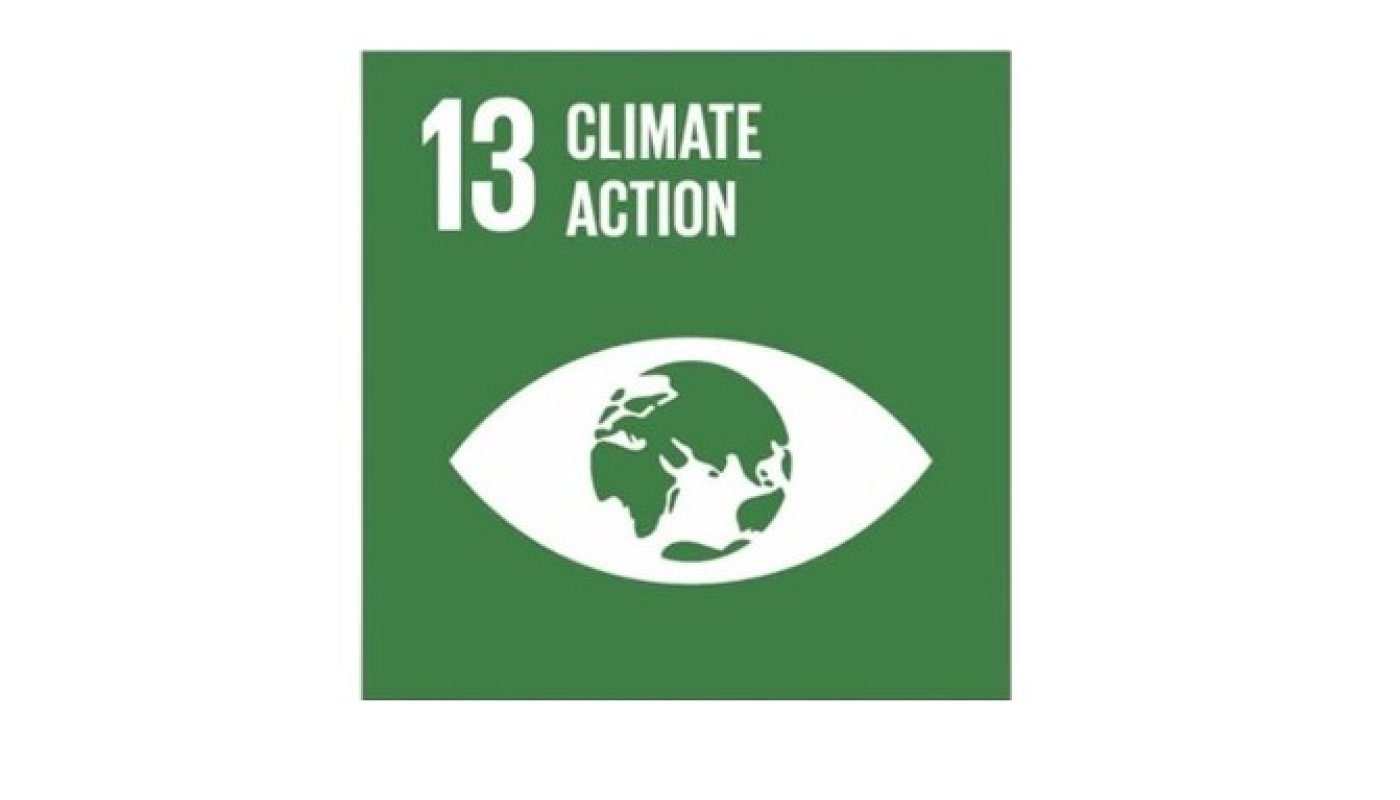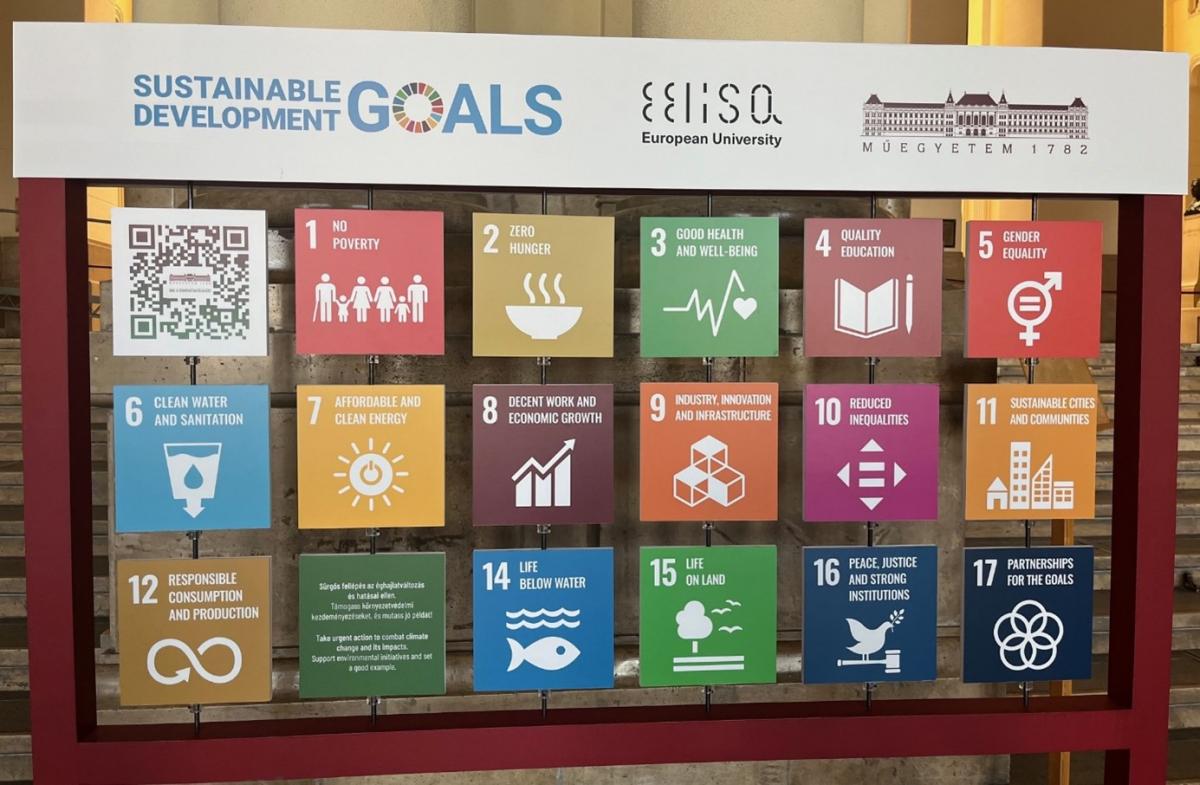News feed
17 Goals for a better world – no. 13: Climate action
2024. 06. 04.
Our series of articles entitled “Sustainable Tuesday(s)”, will take a look over 17 weeks at the 17 Sustainable Development Goals (SDGs) set by the UN to make the world a better place.
This time, we will explore in more detail goal no. 13, the Climate action, which is to:
Take urgent action against climate change and its impacts.
Support environmental initiatives and set a good example.

‘Climate action” is no. 13 among the UN’s Sustainable Development Goals. This goal is one of the 17 that includes a number of activities promoted and implemented by the BME and which can be linked to other goals as well.
These include, but are not limited to, research on previously learned solar systems and energy systems, the second Bike & Breakfast this year and related sustainable mobility activities, resilient infrastructure issues, or initiatives and research related to drinking water supply and health promotion. The reason for this is that the path to SDG 13 branches in two directions, and there is an identifiable university connection on both sides. The first is mitigation, that is, the reduction of greenhouse gases (GHG): perhaps there is no one regardless of the area of science they study and practice, among the faculty members and students of the Budapest University of Technology and Economics, who would not run into during their career the GHG reduction goal undertaken by the given economic branch or industrial sector. Therefore, it is safe to say that our teaching and research activities, as well as almost 100% of BME’s graduates, are linked to the mitigation goals in many ways. The second is adapting to the impacts of climate change: research on the impacts and the resulting vulnerability of urban heat islands, the contribution of the energy performance of buildings to indoor comfort, knowledge capital related to drinking water management, and research on CO2 sequestration of soils and cereal varieties adapting to changing climates can all be found at BME and is used by both faculty members and students.
When planning of university investments, special attention is paid to energy-focused projects, and in recent years, important steps have been taken in terms of installing and maintaining solar panels and increasing the energy efficiency of buildings. Currently, 8 buildings on campus have solar panels: the Baross, Bercsényi and Wigner halls of residence, as well as buildings AE, ÉL, I, J and ST, and additional solar installations are being planned for the Martos and Vásárhelyi halls of residence as well as the Stoczek canteen building. The 400 MWh of energy produced by currently operating solar panels helps reduce internal consumption. The energy efficiency of the historic campus buildings of the BME is also increased with the replacement of doors and windows. This is why last year the renovation of 73 corridor windows of Building K was such an important investment, which increases energy savings through the use of adjustments, rubber seals and Low-e coated glazing. Increasing efficiency is also helped by modernizing the hot water supply of buildings R and D by replacing the steam-based system. Regarding the energy use of the University, an energetics specialist opinion was prepared, which also contains recommendations for future steps to be taken.
It is also worth mentioning the shady areas of the historic campus, which play a role in increasing biodiversity through the recently installed bird houses, as well as in the micro-level balancing of the heatwave days, which are predicted to become more frequent and intense in the future.
The Faculties contribute in different ways to achieve SDG 13.
The Erasmus mobilities of the Faculty of Economic and Social Sciences were made carbon-neutral through offsetting mechanisms. In addition, extensive research at GTK (OTKA, MTA National Programme for Sustainable Development Technologies, TKP2021) apply to the complex assessment system of adaptation to climate change, and the Faculty has also announced the first two subjects that focus on certain aspects of climate change in a unique way at BME. Climate Change - Advanced level is an elective course for all BME students, while Strategic Planning of Climate Protection provides GTK students with up-to-date knowledge about the social and economic effects of climate change.
Operating the only training reactor in Hungary, the BME Faculty of Natural Sciences plays a lion’s share in the training of Hungarian and regional nuclear specialists. As a pilot project, the trainings of the BME’s Institute of Nuclear Techniques were the first in the world to be accredited by the International Atomic Energy Agency. Nuclear energy is gaining more and more attention through the recognition that although it is not a renewable energy source, it still has zero carbon emissions in energy production. Over the entire life cycle of nuclear power plants (construction, decommissioning and dismantling), nuclear energy production has the same carbon footprint as wind energy (per unit of energy) and a third less than solar energy production.
Researchers of the Faculty of Civil Engineering use remote sensing techniques to detect and predict the impact of climate change on the environment (e.g. pollution, floods, forest fires, earthquakes, tsunamis, changes in the melting of Arctic rivers), plan the transformation of rainwater drainage systems due to high intensity rainfalls, support flood risk mitigation measures (e.g. improving flood reservoirs or river flood drainage) with water management strategies and modelling, and study the adaptability of our buildings to heat waves.
Looking at the statistics of the past years, 26 publications, 3 research projects, 1 student project and 17 subjects taught at almost every faculty indicate BME’s commitment to the implementation of sustainable development goal climate action.
The term SDG stands for the 17 Sustainable Development Goals established by world leaders at the 2015 UN summit to set new directions for global development. In a series of articles called “Sustainable Tuesday(s”, we will take a look at the 17 Sustainable Development Goals (SDGs) over 17 weeks and show what BME is doing to achieve them, within its own means. You can check out these development goals in a playful way with the help of boards placed at the entrances of the 3 busiest buildings (E, K, Q) on the BME campus. For more information on this topic, you can join the BME GreenHub Facebook group and visit BME’s main website to access our BME for Sustainability platform |
DF, KK (BME Committee on Sustainability)
